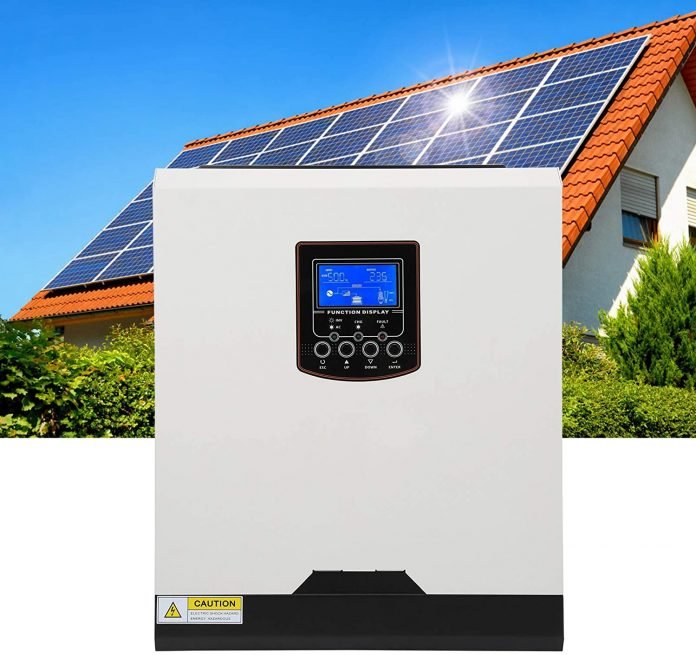Last Updated on March 24, 2024 by Saira Farman
Modern residential solar systems are used throughout the country, and many of them now utilize solar storage while also being connected to a city grid. These are known as hybrid systems, and they require special solar inverters known as hybrid inverters. If you’re considering installing solar power, but you don’t have the budget for a battery bank just yet, should you simply install a grid-tied inverter, or is a hybrid inverter still the way to go? Keep reading to find out more.
Table of Contents
Hybrid inverter
A hybrid inverter is an inverter that can work with or without batteries. When there are no batteries, the hybrid inverter operates as a grid-tied inverter and feeds excess solar energy directly back to the grid. When batteries are added, the inverter can also charge and discharge the batteries, providing backup power during a power outage.
Will It Work without Batteries?
If you’re concerned that a hybrid inverter won’t function as it should without a battery bank attached, don’t worry. These inverters will work just as well as a standard grid-tied inverter would in the same system design. You don’t need to attach a battery for your system to work with a hybrid inverter.
Can You Add Batteries Later?
Again, the answer here is yes. You can add a battery bank to your solar power system later on, but only if you install a hybrid inverter. This is a fast and easy upgrade to an existing solar system and can greatly improve its overall functionality once you have the budget to do so.
However, it’s important to keep in mind that solar technology is evolving rapidly. While most batteries are flexible and compatible with many brands of inverters, things can change over time. If you don’t think you’ll be able to add batteries to your system within the next couple of years, your hybrid inverter might struggle to mesh well with the latest and most efficient solar battery models.
What Will It Cost?
If you’re deciding between a hybrid inverter and a grid-tied inverter, cost is an important consideration. It’s worth noting that hybrid inverters typically come with a higher price tag than grid-tied models due to their expanded functionality. While the increased cost might make some people hesitate, you should still keep the long-term savings and convenience of a hybrid system in mind when making the decision.
Consider Built-In Storage
If you can’t afford a battery bank at the moment, but want the convenience of a hybrid system now, consider a hybrid Sol-Ark inverter with some built-in storage. While the storage capacity built into these units doesn’t compare to a full-sized battery bank, it can help you keep essential systems running in the event of a power outage, at least. This can give you some of that convenience of a hybrid system while you work towards adding a battery bank that can supplement your solar power production.
Apart from that, if you are interested to know about the advantages of LiPo batteries then visit our Technology category.















